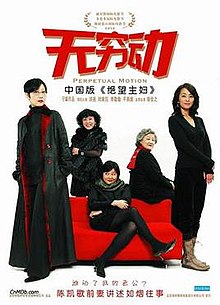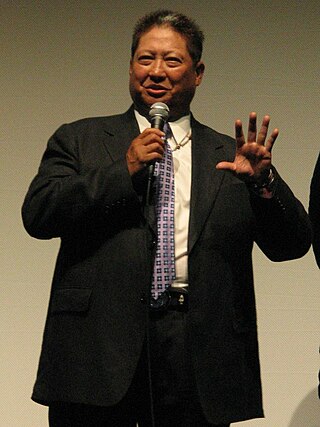
Sammo Hung Kam-bo is a Hong Kong actor, martial artist, film producer and director, known for his work in martial arts films, Hong Kong action cinema, and as a fight choreographer for other actors such as Jackie Chan.

Liu Sola is a Chinese composer, vocalist, music producer, and author.

The People's Republic of China competed at the 1984 Summer Olympics in Los Angeles, United States. It was the first appearance at the Summer Games for the country after its mostly symbolic presence at the Summer Games in 1952 during which the dispute between the Republic of China and the PRC resulted in the former withdrawing all its athletes. After 1952 and until these games, the PRC boycotted the Olympics due to the Taiwan's presence as the Republic of China. In 1984, the Republic of China competed as Chinese Taipei and the PRC competed as China. Due to the then ongoing Sino-Soviet split, China did not participate in the Soviet-led boycott. In the previous games, China participated the United States-led boycott to protest the Soviet invasion of Afghanistan in 1979, becoming the only communist country to boycott Olympics held by another communist country.

Beijing Film Academy is a coeducational state-run higher education institution in Beijing, China. The film school is the largest institution specializing in the tertiary education for film and television production in Asia. The academy has earned international recognition for its achievements in film production.
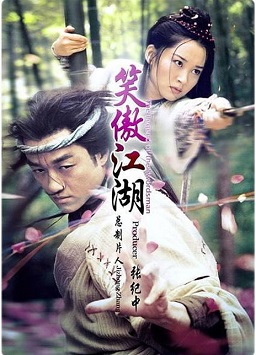
Laughing in the Wind is a 2001 Chinese television series produced by Zhang Jizhong, starring Li Yapeng and Xu Qing in the leading roles. The series is an adaptation of Louis Cha's novel The Smiling, Proud Wanderer. It was first broadcast on CCTV in China in 2001.

Jiang Qinqin is a Chinese actress. She is sometimes credited as Shui Ling, a stage name given to her by Taiwanese writer Chiung Yao while she was involved in the production of the television series Tears in Heaven.

The Return of the Condor Heroes is a 2006 Chinese television series adapted from Louis Cha's novel of the same title. It is the second instalment of a trilogy produced by Zhang Jizhong, preceded by The Legend of the Condor Heroes (2003) and followed by The Heaven Sword and Dragon Saber (2009). It was first broadcast on 17 March 2006 in China and subsequently broadcast in other Asian countries such as South Korea, Taiwan and Singapore.

Three Kingdoms: Resurrection of the Dragon is a 2008 Hong Kong action war drama film loosely based on parts of the 14th-century Chinese classical novel Romance of the Three Kingdoms. It was directed by Daniel Lee with a reported budget of US$25 million. The film is a joint production between Hong Kong, the People's Republic of China and South Korea.
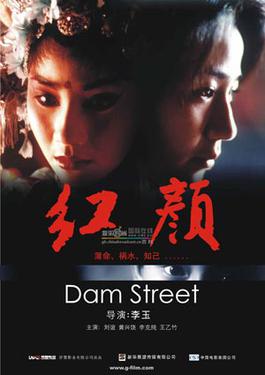
Dam Street is a 2005 Chinese film directed by Li Yu. Dam Street is Li's second feature film, after 2001's Fish and Elephant and was produced by screenwriter Fang Li's Laurel Films and Sylvain Bursztejn's French company, Rosem Films.
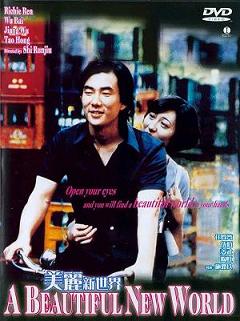
A Beautiful New World is a 1999 Chinese comedy film directed by Shi Runjiu. The film, Shi's first, was co-produced by Xi'an Film Studio and the independent Imar Film Company. It was Imar Film's second production, after 1997's Spicy Love Soup.
Ning Ying is a female Chinese film director often considered a member of China's "Sixth Generation" filmmaker coterie, a group that also includes Jia Zhangke, Zhang Yuan and Wang Xiaoshuai. However, this is more a result of a shared subject matter than anything else, as chronologically, Ning is closer to the earlier Fifth Generation. Her sister, the screenwriter Ning Dai, is a frequent collaborator and the wife of fellow director Zhang Yuan. In 1997, she was a member of the jury at the 47th Berlin International Film Festival.
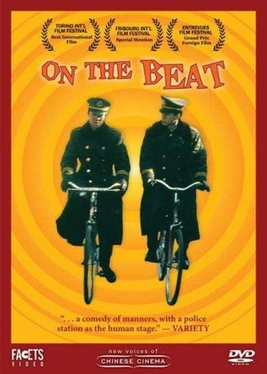
On the Beat is a 1995 Chinese film directed by Ning Ying. It is the second film in Ning Ying's Beijing Trilogy, a collection of three films that follows the massive changes to Beijing in the last decades of the twentieth century. Whereas Ning's previous film, For Fun dealt with the older generation, On the Beat is firmly focused on the story of the middle-aged. I Love Beijing, meanwhile, would follow characters belonging Beijing's younger generations. On the Beat was coproduced by Eurasia Communications, Euskal Media and the state-operated Beijing Film Studio. Some funding was also from the International Film Festival Rotterdam's Hubert Bals Fund.
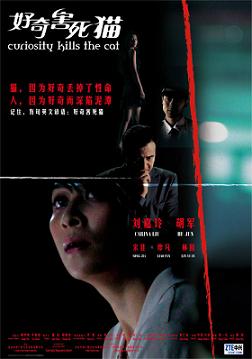
Curiosity Kills the Cat is a 2006 Chinese thriller film directed by Zhang Yibai. The film is set in the director's home city of Chongqing. Produced by China Vision Group and Eagle Spirit Management, Curiosity Kills the Cat stars Hu Jun, Liao Fan, as well as veteran Hong Kong actress Carina Lau. Though primarily a mainland Chinese production, international sales was handled by Hong Kong-based Golden Network.

What Women Want is a 2011 Chinese-Hong Kong romantic action comedy film remake of the 2000 American film of the same name. The film stars Andy Lau and Gong Li. What Women Want was released in China on 3 February 2011, the first day of Chinese New Year.

Finding Mr. Right is a 2013 romantic comedy film written and directed by Xue Xiaolu. The film was a box-office hit, grossed nearly US$85 million in China. The title translates literally as "Beijing Meets Seattle". A sequel was released in 2016, Finding Mr. Right 2.

The Love Eterne is a 1963 Hong Kong musical film of the Huangmei opera genre directed by Li Han Hsiang. An adaptation of the classic Chinese story "Butterfly Lovers", it tells of the doomed romance between the male Liang Shanbo and the cross-dressed female Zhu Yingtai.

Breakup Buddies is a 2014 Chinese romantic comedy and road film directed by Ning Hao. It stars Huang Bo and Xu Zheng as buddies on a wild 3,000-kilometre cross-country journey from Beijing to Dali City.
The Grand Mansion Gate is a 2001 Chinese historical television series written and directed by Guo Baochang. Guo is also the author of the original novel of the same name. The television series stars Siqin Gaowa, Chen Baoguo, Liu Peiqi, Du Yulu, He Saifei, Jiang Wenli, and Zhang Fengyi. Prominent Chinese directors Zhang Yimou and Chen Kaige also make cameo appearances.
Teresa Ha was a former Chinese television and film actress from Hong Kong. Ha is credited with over 260 films.
